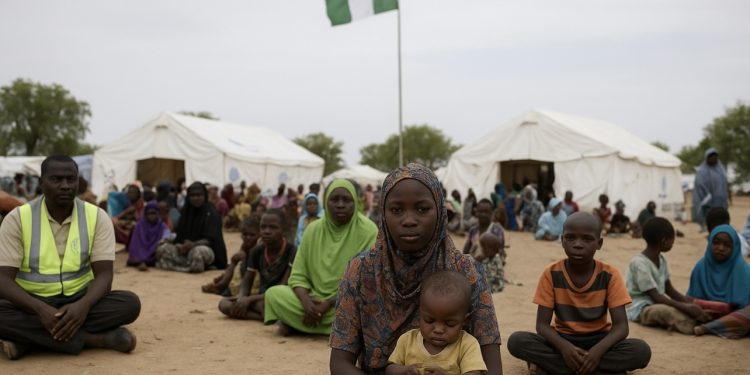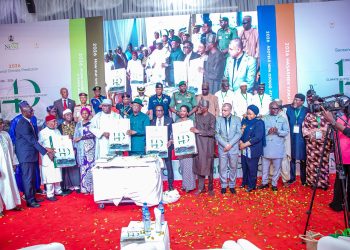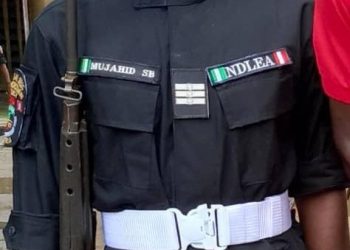By Zakari U. Mijinyawa
This opinion challenges recent Western claims that Christians in Nigeria are facing genocide. It argues, based on international law, ICC findings, and human rights research, that Nigeria’s violence arises from terrorism and ideological extremism, not a coordinated plan of religious extermination. The piece urges precision in language and policy, emphasizing justice, protection, and practical international support over political rhetoric.
Recent claims in Western political circles and media have described the violence in Nigeria as a “Christian genocide.” Some members of the United States Congress, including Senator Ted Cruz, have urged that Nigeria be redesignated as a “Country of Particular Concern” for religious persecution, a classification previously used by the U.S. Commission on International Religious Freedom.
Senator Cruz, in introducing the Nigeria Religious Freedom Accountability Act of 2025, alleged that Christians in Nigeria are being “targeted and executed for their faith” by Islamist terrorist groups. While some commentaries have described these claims as assertions of a “Christian genocide,” the bill itself does not use that term.
These claims are emotionally powerful but legally and factually misleading.
Nigeria faces an evolving humanitarian and security situation, but calling it genocide distorts the nature of the conflict and risks deepening divisions. The reality is that Nigeria is fighting a long and brutal war against terrorism, not an organized campaign to exterminate Christians.
The Legal Meaning of Genocide
Genocide is one of the most serious crimes in international law. Under the Rome Statute of the International Criminal Court (ICC), which Nigeria has incorporated into national law, genocide refers to acts committed with intent to destroy, in whole or in part, a national, ethnic, racial, or religious group.
This definition demands clear proof of intent to eliminate a group because of its identity, not purely evidence that large-scale killings or persecution occurred. The situation in Nigeria, tragic as it is, does not meet this stringent standard.
The crime of genocide has been legally confirmed only in a few cases, such as Rwanda and Darfur, through international tribunals and ICC proceedings. This underscores how rare and high the legal threshold for such a finding is.
What the International Criminal Court Found
The ICC’s Office of the Prosecutor examined the situation in Nigeria for nearly a decade. In December 2020, Prosecutor Fatou Bensouda concluded that there was a reasonable basis to believe that both Boko Haram and security forces had committed war crimes and crimes against humanity, including murder, rape, torture, persecution, and the use of child soldiers.
However, she did not describe these crimes as genocide. There was no evidence of intent to destroy Christians or any other group. The ICC found that Nigeria’s violence stemmed from terrorism, ideology, and armed conflict, not from a plan to eliminate a religious population.
If the world’s foremost criminal court, after years of evidence-gathering, did not conclude genocide, it is inaccurate for politicians or advocacy groups to claim otherwise.
The Nature of Boko Haram’s Violence
Understanding Boko Haram’s ideology is essential. The group rejects modern government, democracy, and secular education. Its worldview is anti-state and anti-modern, not narrowly anti-Christian.
As detailed by scholar Alex Thurston in Boko Haram: The History of an African Jihadist Movement (Princeton University Press, 2017), the group’s attacks have targeted both Muslims and Christians. Boko Haram has bombed mosques, assassinated imams who opposed it, and murdered traditional leaders who resisted recruitment.
While large-scale data are incomplete, research by Amnesty International shows that Boko Haram attacks both Muslims and Christians and that many incidents are not based on the victim’s religion.
To label this campaign of terror a Christian genocide ignores the suffering of thousands of Nigerians who have also been killed, displaced, or enslaved.
Boko Haram and its affiliates have made it clear in their public statements that their fight is against Nigeria as a state, against democracy, and against all who identify with the idea of Nigeria. To them, anyone loyal to the country is a legitimate target of their terror, regardless of religion, ethnicity, or region.
Extremists Attack Their Own Elsewhere Too
The idea that violent extremists target only non-Muslims is contradicted by evidence from across the Sahel and the Middle East. Groups with similar ideologies, such as ISIS affiliates and al-Qaeda networks, have repeatedly attacked Muslim communities, clerics, and Sufi orders who reject their authority.
Reports by the United Nations Panel of Experts on Mali and the Africa Center for Strategic Studies document massacres by jihadist groups in Mali, Burkina Faso, and Niger, often in regions with few or no Christians. These terrorist groups enforce ideological conformity, not religious cleansing. Nigeria’s experience reflects this global pattern.
Nigeria’s Legal Response
Nigeria prosecutes Boko Haram members under the Terrorism (Prevention and Prohibition) Act of 2022, not under laws on genocide or religious persecution. Charges typically include terrorism, murder, hostage-taking, and membership in proscribed organizations, as reported by the Federal Ministry of Justice.
This approach fits the facts: Boko Haram’s objectives are political and ideological. The group seeks to destabilize the state and impose extremist rule based on a distorted interpretation of Islam, not to annihilate Christians. Nigerian courts, often with support from regional and international partners, continue to try suspects for terrorism and related offenses.
Law, Evidence, and Policy
The urgency of protecting victims must not lead to careless use of legal terms. Both Christians and Muslims have suffered deeply and deserve justice. But labeling the conflict genocide, when even the ICC did not, misapplies the law and risks misdirecting policy at home and abroad.
The ICC’s careful distinction between war crimes, crimes against humanity, and genocide matters. It determines how evidence is collected, which institutions respond, and what remedies victims can pursue. Precision in law is not academic, it is fundamental to justice and sound policymaking.
A Constructive International Role
The most constructive role for international partners is practical support, not rhetorical escalation. The focus should be on strengthening investigations, ensuring fair prosecutions, improving civilian protection, and expanding humanitarian access. Development initiatives that rebuild communities and reduce recruitment into armed groups, as highlighted in the UNDP’s Journey to Extremism in Africa (2021), are equally vital.
Rhetoric that mislabels the crisis as genocide may draw attention but risks polarizing Nigerian communities and undermining cooperation. The priority should remain helping victims, reinforcing institutions, and holding perpetrators accountable.
Conclusion
Nigeria’s security challenges are serious and demand urgent, coordinated action. But the correct legal frame terrorism and organized violence, points toward criminal justice, institutional reform, and long-term reconciliation.
Calling the situation a Christian genocide does not advance justice or protect victims. Nigeria’s struggle is against violent extremism and criminal networks, not against faith. Recognizing that truth is essential for effective policy and lasting peace.
Zakari is a Nigerian lawyer and national security staff.

















